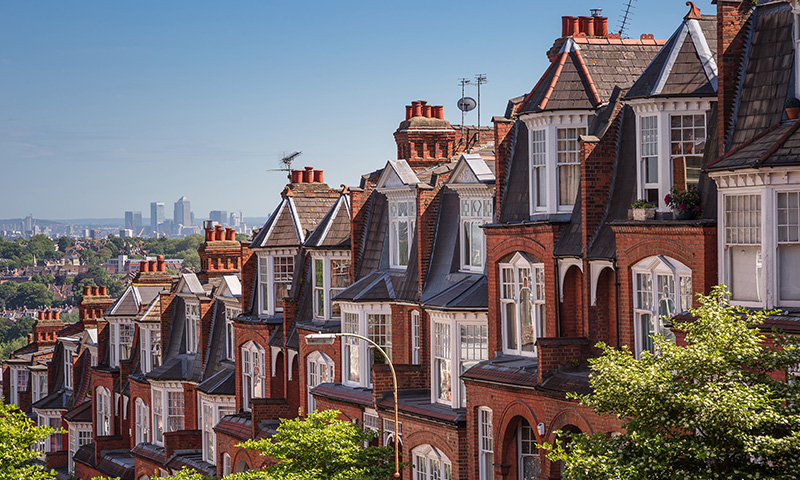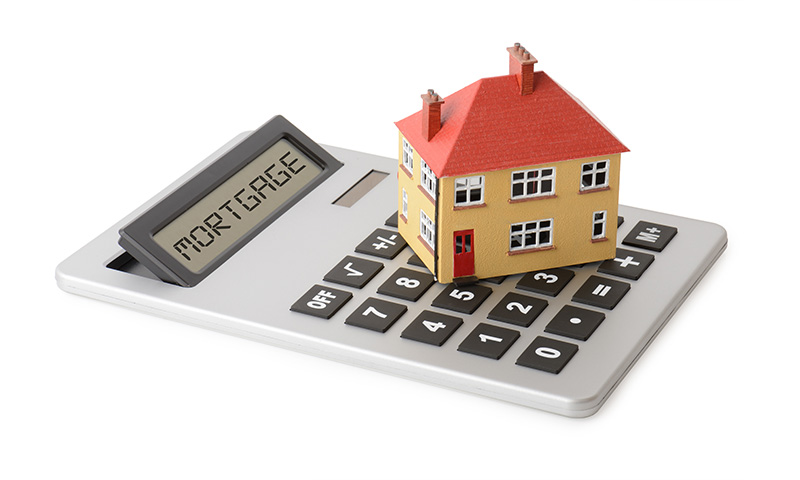Beginner’s Guide to Mortgages
Beginner’s Guide to Mortgages – Part 1
A Mortgage is likely to be the largest loan you will ever take out. It is a financial commitment for at least half of your working life. Yet, like many other big things in life such as parenting, you will not find it taught in schools or on any syllabus. So, for many first-time buyers, stepping onto the housing ladder is not only daunting in terms of the amount of money you need, it can also be a daunting process.
In this and the next blog we will outline some of the basics about mortgages. In this blog we will explain what you need to get a mortgage. In part 2 we will outline the types of mortgages available, the fees you may be charged, how to choose a mortgage and where to get help in choosing a mortgage.
Welcome to the Castle and Grey Beginner’s Guide to Mortgages – Part 1
What is a mortgage? A mortgage is a loan you take out from a Bank or Building Society to buy property or land. This loan is secured against the value of the property or land. This means that if you don’t pay your mortgage payments the bank or Building Society may repossess your home to repay the debt. A mortgage is taken out over a set amount of time and the monthly repayments are calculated so that you usually pay off the entire debt; i.e. loan amount (capital) and the interest of the loan, over that period.
What You Need to Obtain a Mortgage
• Deposit – you will need a sum of money as your part of paying for the house. Usually you will need at least 10% of the property value (although some 5% deals are available). If you have more than 10% deposit this reduces the loan to value ratio (LTV), which will usually give you a better mortgage rate.
• Proof of Income – you will need to have proof of your income. This will usually be your pay slips, but if you are a business owner this could be your accounts. The amount of income you have will give a guide to the amount of money you can borrow, typically mortgage providers use an income multiplier of about 4x salary (if you earn £30,000pa they could lend you up to £120,000.) If you have regular overtime or bonuses that top up your salary you will need to have evidence of this. Not all mortgage providers will consider overtime and bonuses as part of what you can afford.
• Good Credit History – before agreeing to lending the money, the mortgage company will want to see that you have a record of paying bills and loans. This includes paying credit cards, mobile ‘phone agreements and electricity/gas bills on time. However, even if you have a bad credit history there are some mortgages available – a mortgage adviser would be able to guide you to an appropriate product.
• Proof of Affordability – you will need to show you can afford the mortgage payments. Many mortgage companies will ask for details of all your regular monthly financial commitments including utility bills, credit card payments, insurance, council tax, student loan repayments, car loans and child maintenance. This will then show how much you can afford to pay each month. You may also be asked about future affordability.
• Potential house to buy – before you start looking for a house to buy some mortgage lenders may give you an agreement in principle based on the information you have provided in paragraphs a to d above. However, you cannot apply for a mortgage until you have an offer accepted on a property as the lenders will want to check that the property meets their lending criteria and they agree with the valuation.
If all this looks complicated, don’t worry. You will probably only have to go through the process a few times in your life, but a mortgage adviser is securing mortgages for clients every day. We can guide you through the information that you need and have a wide knowledge of the mortgages available for you.
At Castle and Grey we will advise you on the best products that meet your individual need and guide you through the whole process.
We not only offer you our best advice, but we also deal with the lender, the solicitor and the estate agent to make sure the whole process goes as smoothly as possible.
Beginner’s Guide to Mortgages – Part 2
A Mortgage is likely to be the largest loan you will ever take out. It is a financial commitment for at least half of your working life, so it is important that you know what your commitment is and that you will be able to pay the monthly instalments.
In part 1 of the Beginner’s Guide we explained what you need, to get a mortgage. In this blog we will outline the types of mortgages available, the fees you may be charged, how to choose a mortgage and where to get help in choosing a mortgage.
Welcome to the Castle and Grey Beginner’s Guide to Mortgages – Part 2
Types of Mortgage
Most people will choose a repayment mortgage. This is a loan taken out over a set amount of time (usually 25 years) and the monthly repayments are calculated so that you pay off the entire debt; i.e. loan amount (capital) and the interest of the loan over that period.
There are also Interest only mortgages. They are currently not very popular with lenders as they are high risk. This is where you only pay off the interest part of the loan on a monthly basis. You still have to pay off the capital amount at the end of the mortgage term.
However you choose to pay off your mortgage there are a range of mortgages on offer that give options for how much you pay each month. You will need to do your research as to what is best for you and a mortgage adviser can help you with this and often have exclusive deals.
The products will usually have features that last for a limited time, typically 2 to 5 years. These are some of the descriptions you may see, they are not mutually exclusive.
• Fixed rate – this gives you a fixed monthly payment for a set number of years after which you will go onto the Bank’s standard variable rate (see below). You will not benefit from a reduction of interest rates, but neither will your payments increase if the interest rate goes up
• Tracker mortgage – the amounts you pay will depend on the fluctuations in Bank of England interest rate for a set amount of time, after which you will go onto the Bank’s standard variable rate. Initial payments will usually be lower than a fixed rate mortgage, but they could increase
• Standard Variable Rate – the amount you pay is based on the lender’s own interest rate and will fluctuate depending on changes in interest rate
• Discounted mortgage – the amount you pay will be a percentage below the Bank’s standard variable rate for a set amount of time. This can also be a variable rate as the bank based rate could change
• Flexible – the mortgage may allow for overpayments, underpayments and payment holidays within certain restrictions
• Offset mortgages – this is where you run a savings account alongside the mortgage and the interest from the savings account pays off interest from the mortgage
• Cashback mortgage – you receive a lump sum from the mortgage company when the mortgage commences
• First Time Buyer mortgage – some products are aimed specifically at first time buyers, having incentives on the valuation or in the form of cashback to help first time buyers
• Buy to Let mortgages – these are for people buying houses to rent out and will be looked at in more detail in a future blog
Fees
Calculating which is the best mortgage for you can be quite complex as you need to consider not just the initial payment rate but also a range of fees, charges, the standard variable rate, flexibility and length of time of a specific rate.
The fees you will need to consider when choosing your mortgage product include:
• Booking/application fee this is (usually) an upfront, non-refundable fee to book your product – most products are only available for a limited amount of time, so this fee books it for you whilst all the paperwork is completed
• Arrangement fee this is paid to the mortgage lender for them to administer your mortgage throughout the life of the mortgage. It can be added to the sum of the mortgage, although you have to pay interest on it, so it may be worth paying it up front if you can.
• Valuation and valuation administration fee, these are (usually) an upfront, non-refundable fee charged by the lender to give a basic valuation of the property. If you want your own Homebuyers or Structural Survey you will need to pay for these separately.
• Early repayment charges, this is a charge to you if you pay off the mortgage early. It is usually only applicable for a certain amount of time, typically the time of the special rate. For instance you might have a 5 year fixed rate mortgage. If you pay that off within the first 5 years, you will have an early repayment charge to pay.
• CHAPS, this fee is paid to the mortgage company on completion of the mortgage and covers the cost of them sending the mortgage money to your solicitor.
All these costs will be set out in your Key Facts Illustration which sets out the full details of the mortgage before you make the decision to proceed with the mortgage.
There are a number of other costs involved in setting up a mortgage and buying a house, which you will need to consider when setting your budget:
• Legal Fees or Conveyancing Charge is what you will pay to a solicitor for carrying out the legal part of the house purchase. It is worth getting quotes from different solicitors for the work – but do check that they are on the lender’s list of approved solicitors before you go ahead.
• Stamp duty is a tax on properties being bought for £125,000 and over. Your solicitor will collect this from you and pay it to HMRC
• Land Registry Fee – this is a charge by the Land Registry to register the property title in your name. This is paid via your solicitor.
• Buildings insurance – you must take out buildings insurance before your mortgage completes. Your lender or mortgage adviser can arrange this for you, but it is worth comparing prices. Some lenders will make a charge if you don’t take out their buildings insurance.
• Mortgage Advice/Arrangement – independent mortgage advisers may charge for the advice and support they give in securing a mortgage for you.
Where to get a Mortgage
You can get a mortgage from:
• Your High Street Bank or Building Society, who only offer mortgages from their company
• Comparison websites, who provide a range of options but offer limited advice
• Mortgage Advisers or Independent Financial Advisers, who either offer products from the whole of the mortgage market or from a limited range that they can access through their financial network. They often have exclusive products only available through them. They will work with you to work out which is the best product for you taking into consideration all the areas discussed in this blog.
At Castle and Grey we will advise you on the best products that meet your individual need and guide you through the whole process.
We not only offer you our best advice, but we also deal with the lender, the solicitor and the estate agent to make sure the whole process goes as smoothly as possible.




